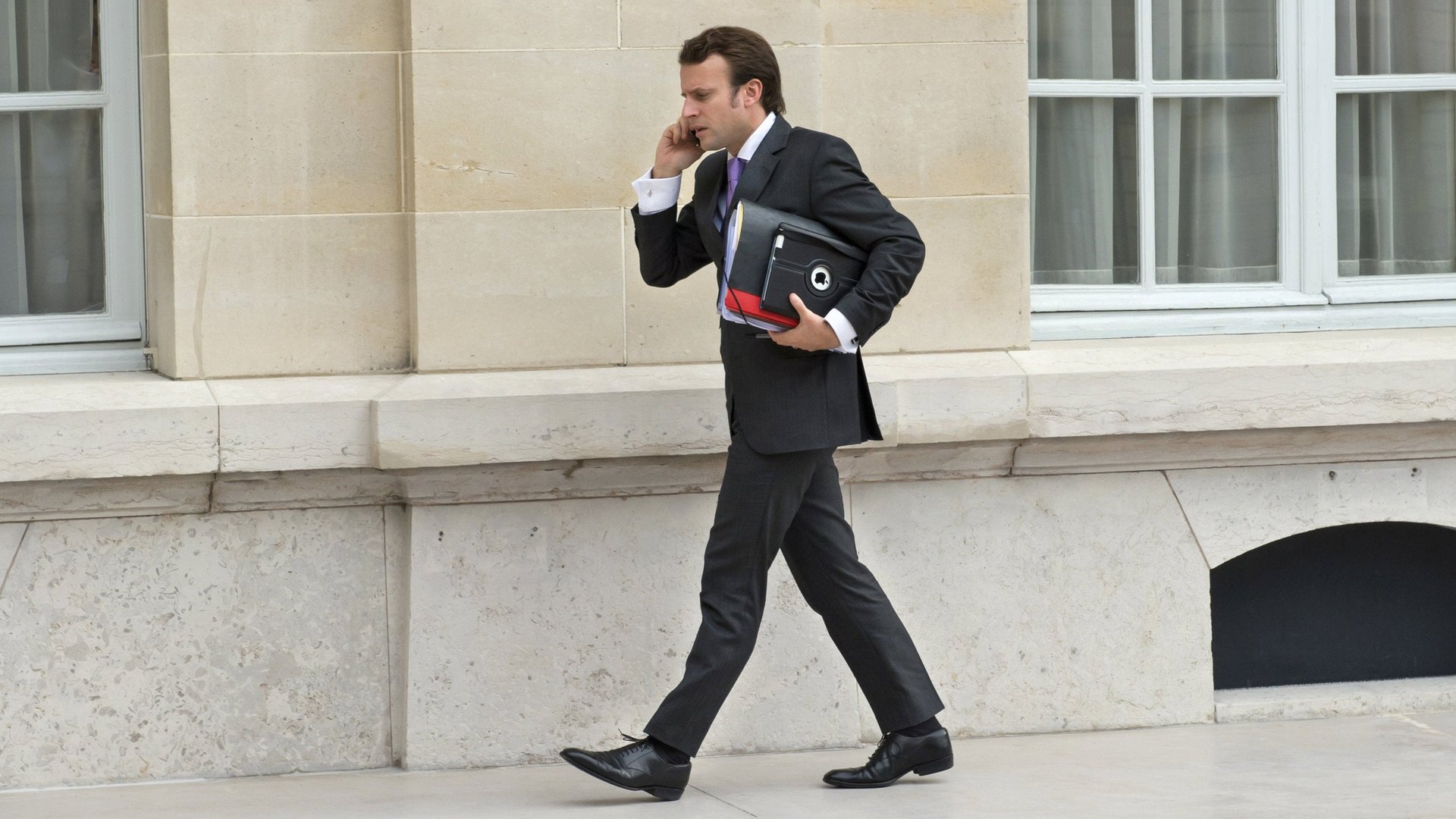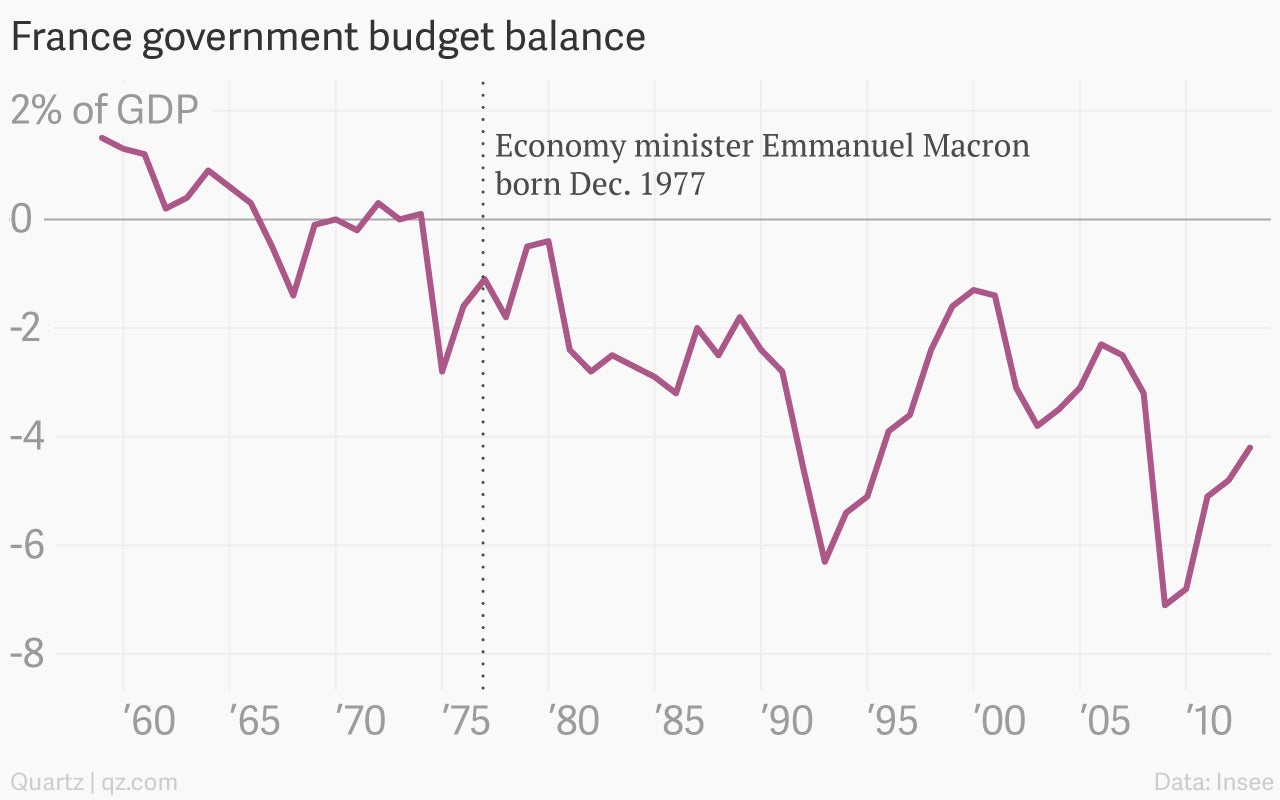France’s new economy minister wasn’t alive the last time the country ran a surplus
If France’s new economy minister, Emmanuel Macron (pictured above), is able to help the government close its budget deficit, it will be the achievement of a lifetime.


If France’s new economy minister, Emmanuel Macron (pictured above), is able to help the government close its budget deficit, it will be the achievement of a lifetime.
Literally.
The 36-year-old former investment banker wasn’t yet born when France last ran a surplus:

Macron is the most notable new face in president François Hollande’s latest government reshuffle. A favored aide to the president, Macron is the polar opposite of the man he replaced, Arnaud Montebourg.
Montebourg sparked the reshuffle with his persistent criticism of Hollande, whom he considers too wedded to austerity. Macron, by contrast, helped craft the package of tax cuts and spending reductions that is currently riling up left-wing members of Hollande’s party, led by Montebourg. Macron is popular with businesses, thanks to his time as a dealmaker at Rothschild, unlike Montebourg, who forcefully intervened in mergers and restructurings and published a manifesto titled Votez pour la Démondialisation! (Vote for Deglobalization!).
Along with finance minister Michel Sapin, a Hollande confidant who kept his job in the reshuffle, Macron faces a stiff challenge to restart France’s stagnant economy. The government expects GDP growth of only 0.5% this year, and even that might be optimistic. France recently abandoned its deficit target for 2014 and looks likely to miss its EU-imposed goal for next year, too.
Facing these grim figures, Montebourg resorted to blaming Germany—”Germany is trapped in an austerity policy that it imposed across Europe,” he said the day before he was dismissed from the cabinet. Everyone expects something different from Macron, who said today that he will support French industry without “pointless quarrels.” Despite his pro-business, pro-market reputation, the jury is still out on whether he is the answer to breaking France out of its long economic malaise.